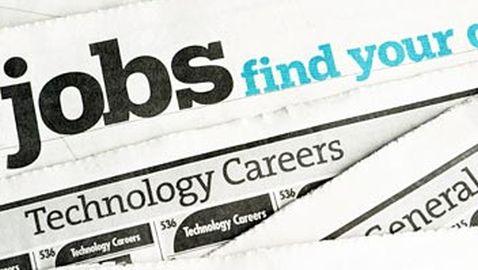Top 3 Ways to Prepare for Any Job Interview (How to Prepare for an Interview)
Post Views 17I’ve spent much of my career teaching interviewers how to maximize their side of the interview table. This article, however, is dedicated to all you excellent people who nail your chosen profession every day but fail at the interview table.
Almost every week, I see a hiring manager decline an excellent candidate just because he didn’t perform well in the interview. In fact, some of the best candidates I’ve ever met have been lousy interviewees. For those gems, it takes a skilled interviewer to dust off the dirt and get to the value.
The bad news: Most interviewers aren’t trained well. Most allow their first impression to rule the conversation. Most will judge your job performance based on how well you interview.
The good news: Most other candidates are equally lousy at being interviewed. They are unprepared, and they don’t know how to give the interviewer the answers to interview questions he is looking for. By reading and applying the advice in this article, you’ll be able to move to the other side of the interview table, put your arm around that narrow-eyed judge, and give him the powerful answers to interview questions he’s hoping to hear. Therefore, as you learn to perform in an interview, you will soar above the unpracticed competition with grace and style. You will become the obvious choice.
You can do it!
Interviewing well can be learned
The scope of this article is general advice on interview questions and answers, but if you really want to make the most of every interview opportunity, you must practice. You must heed the advice AND practice. Thank heavens interviewing is a learned skill. If you’re nervous, you can beat it. All it takes is practice. Like any other skill, the more you do it, the easier it becomes. Unfortunately, to practice well you need a coach, or at least an exhaustive list of questions that might be asked and potential answers. I can’t provide that here, as the article would go on forever. I can, however, give you some excellent advice on how to answer questions IN GENERAL and point you toward some excellent resources to round out your skills.
Interview Tip #1: Practice Interviewing
Time to be blunt.
If you’re reading this, you’re obviously willing to invest some time in preparing for your interviews. If you don’t invest time preparing and practicing for your interviews, you will continue to be frustrated as other candidates are chosen. Prepare and practice and you will be successful. Choose not to, and you will most likely fail.
Be prepared to invest time to master your hard-won interviews. Don’t waste a single interview opportunity! An investment in practice time will return to you quickly.
If you’re not willing to invest both tools and time, you’re not serious enough about acing your interviews.
Benefits of Interview Practice
If you invest in practice, these are some of the benefits you can expect:
- You become relaxed and comfortable, not nervous and uptight. Candidates who invest time practicing are able to be themselves, and that genuineness outshines the competition
- You have a mental file of great examples ready to go. You can prove your worth with concrete examples rather than muddling through with weak, last-minute ideas.
- Job offers.
Interview Tip #2: Use Examples to Add Weight
Interviewing is all about marketing yourself effectively. You must persuade the interviewer, even if he is untrained in interviewing, that you are the right person for the job. As a professional interviewer, I can say with confidence the best way to do this is by sharing relevant, specific examples from your past performance. These “work samples” will give the interviewer concrete evidence that you are not only qualified, but will outperform others on the job. How does he know? Because you have outperformed others in the past.
As an example, if an interviewer asked you the common question “Tell me about how you manage your time.”
You could give the average answer: “Well, each day I come in a bit early and make a list of things to do. I don’t leave until those things are done.”
Alternatively, use this opportunity to add some meat! “Well, normally I use a Franklin Planner to list and prioritize my tasks each day, but I can be very flexible when the priorities change. In my current job, priorities are changing all the time. Just last Friday, I was working on an urgent project for our largest client that was due by the end of the day. We got a phone call from a new customer we’d been trying to recruit for months, and they were willing to give us a quick project to see how we could deliver. It seems that their supplier dropped the ball, and now we had an opportunity. I didn’t want to miss the deadline for our biggest client, so I brought in a floater from another department, gave her some of the mundane tasks from both projects, and I was able to complete both requests on time.”
Your interviewer will remember these stories that you tell about yourself, and he will leave the interview with the impression that you are much stronger than the average. If challenged by other interviewers, he can even retell the stories to gain support for hiring you. This is an extremely strong interviewing tactic you should practice until you master it.
See the following articles for more information:
Interview Tip #3: Get Familiar With Yourself
Yes, telling stories about yourself is an important part of interviewing success, but what if you don’t remember any good stories? The best way I have found to recall these to your mind is to regularly review old performance reviews, resumes, memos, and projects you worked on over the last 5 or 6 years. If you’re a college student, think about part-time jobs you’ve held, group research projects you’ve done, tough challenges.
When you review your personal history, ask yourself these questions:
- Who were my bosses?
- Who were my major customers or clients?
- Who were my co-workers?
- What were my major accomplishments with each person or group?
- What were the major problems and obstacles with each person or group?
- How did my boss measure my success or failure?
- Can I quantify my successes in any way?
- What were major and minor projects or accomplishments?
- What teams did I work on?
- What business problems did I solve?
- What people problems did I solve?
- What were my greatest challenges in each time period?
- What were my weaknesses there?
- What were my strengths?
If you go through your performance reviews, projects, and memos and memory banks, ask and answer all these questions of yourself, it should be easier for you to add weight. Experienced interviewers will probe for details, but you should be prepared to offer the inexperienced interviewer more than what he’s asked for. If you do so, you will come out way ahead of the competition.
See the following article for more information:
In Summary
- Practice Interviewing. Drill and rehearse interviews for at least 2 to 5 hours before each interview. Get comfortable with all kinds of interview questions.
- Use Examples to Add Weight. Always use examples to increase the power of your interview answers.
- Get familiar with yourself. Review your previous resumes and performance reviews. Refresh your memory of projects you worked on, problems you encountered and solved, people you worked with, and the homeruns you scored.
See the following articles for more information:




 How to Stand Out in Your Post-College Interview
How to Stand Out in Your Post-College Interview  Workplace Jargon to Drop from Your Vocabulary
Workplace Jargon to Drop from Your Vocabulary  Make Phone Interviews a Breeze
Make Phone Interviews a Breeze  How to Negotiate Your Salary in a Job Interview
How to Negotiate Your Salary in a Job Interview  100K Careers – Rules for Success in 100K Job Opportunities
100K Careers – Rules for Success in 100K Job Opportunities  An HR Job Can Turn Into A Lucrative Career
An HR Job Can Turn Into A Lucrative Career